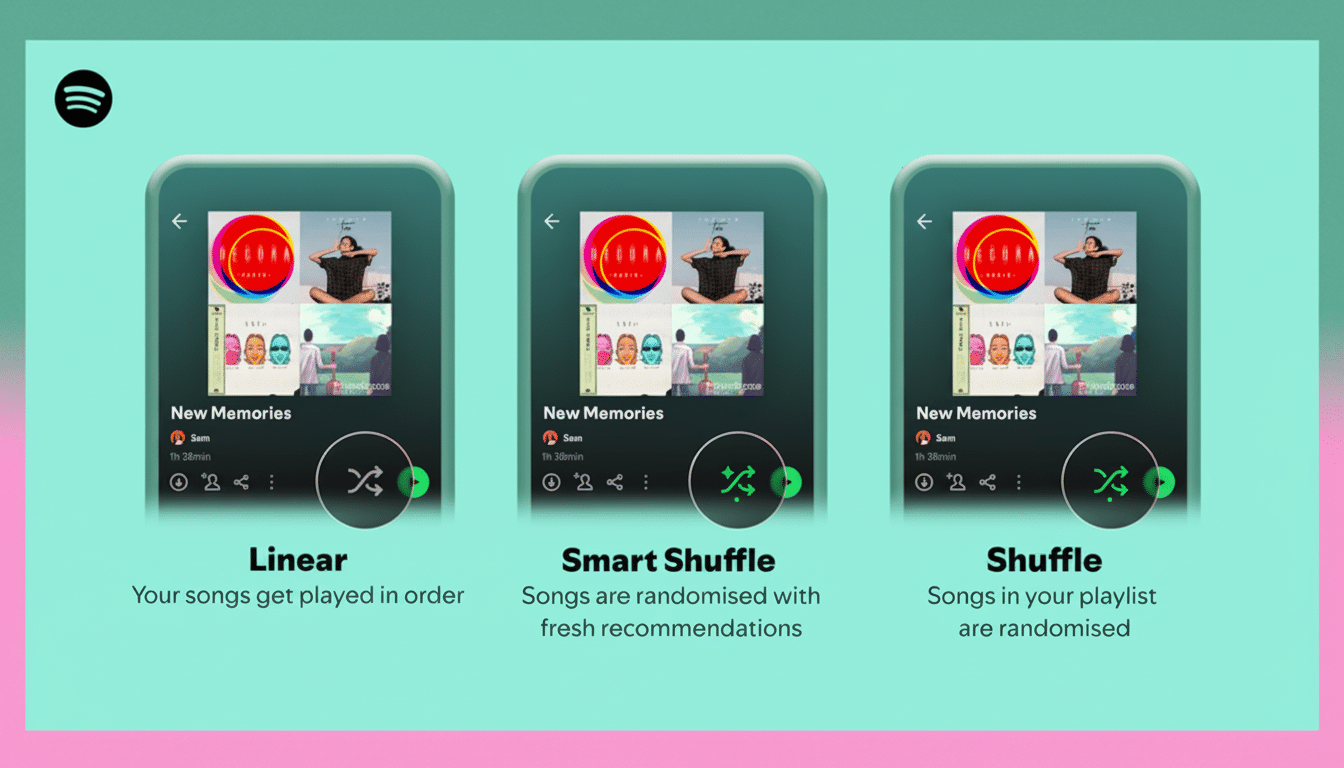Spotify is introducing a new shuffle play experience aimed at giving users more control over their listening and helping them hear things they don’t normally get to, plus new real-time lyrics and cross-app recommendations designed to help introduce you to your next favorite song. The update changes shuffle default behavior for Premium users back to the way it was, and, in addition, introduces a recap button to some audiobook releases which are currently in beta on iOS.
The company’s previous Smart Shuffle, which it debuted in 2023 for paying subscribers, shuffled suggestions into playlists but elicited complaints of constantly hearing the same songs. This mode will not only focus on the regular diversity balance, but also ensure that you’re playing fewer of the tracks stored in your recent history and more new picks. Fans of the old experiences can revert back to Standard via Settings > Playback > Shuffle Mode. All free and Premium users also get the option to tap any song at all to play next from shuffle without reordering the rest of the queue.

Lauren Saunders, Spotify’s product director of personalization, says that pure randomness can feel “clumpy,” a quirk known to anyone who ever learned the operational properties of probability. Spotify’s new approach creates a large number of genuinely randomized play sequences for a playlist, and then scores them based on attributes like freshness, early-session variety, and the spread of repeats throughout the artists and albums in your list — attempting to get randomness right while still matching listener expectations.
How Spotify’s redesigned shuffle experience actually works
Instead of just pasting down one random order and leaving it be, Spotify now considers hundreds of potential shuffles and picks the shuffle with fewer early repeats or that spreads similar tracks apart nicely. In practice, that means if you have a long Liked Songs collection or are working through a crowded genre playlist, it should feel more exploratory in the early going, with fewer déjà vu moments from your recent sessions.
The scoring prioritizes “freshness” — how recently you heard a track or artist — and variety in the opening stretch. It doesn’t erase randomness or impose a deterministic order; it nudges the choice to sequences that feel more varied without, however, violating the statistical integrity of a shuffle.
Why pure randomness in shuffle often feels broken to us
Listeners want alternation, not true randomness. Behavioral work by Daniel Kahneman and Amos Tversky has shown that we underestimate the frequency with which streaks occur in random sequences; this is why a good shuffle can nonetheless sound repetitive. The industry has struggled with this in the past: Apple once infamously tweaked its iPod shuffle years ago to make it “feel” more random by diluting clumps of apparent patterns.
At Spotify’s scale — more than half a billion monthly listeners, according to recent company filings — even incremental gains in perceived variety can buoy satisfaction and cut down on skip fatigue. Skip rates — and session length more broadly — are closely watched metrics across streaming, and a shuffle with a keen resistance to early clumps can inspire deeper consumption without sacrificing discovery.

AI audiobook recaps enter beta for selected iOS titles
Spotify is also testing out audiobook recaps, an AI-generated summary that starts playing when someone presses a button at the top of an audiobook’s page. The recap comes after you’ve been listening for about 15–20 minutes, and walks through as you go — providing you with a “story so far” summary when you return from wherever a pause took you.
The company claims that recaps are not a reproduction of the original narration and that audiobook content is not used to train models. The tool aims to address a common friction point when it comes to long-form audio — trying to remember key plot points or characters across disparate sessions, something that’s especially annoying for people listening on commutes or before bed who will dip in and out.
The beta begins on iOS for a group of English-language titles, meaning the rollout is conservative based around the quality and publisher feedback. It mirrors a larger movement toward AI-assisted summaries across the media while retaining defined guardrails around creative works.
What Spotify listeners should expect from these updates
Users who pay for the Premium version of Spotify will see the more personalized shuffle set as the default, although they will be able to switch back to Standard if they prefer in settings. Both Free and Premium listeners can tap any track to play next on shuffle without disturbing the rest of the queue — useful for slipping in a certain song without having to rebuild a session.
For music, the decision tracks with a long-standing industry lesson: you might have to be slightly less random in order to feel fair. For audiobooks, a quick refresh with short timely recaps could keep more of them in the fold between read sessions. Altogether, the changes are tiny but meaningful nudges toward stickier listening — variety without whiplash, continuity without backtracking.

